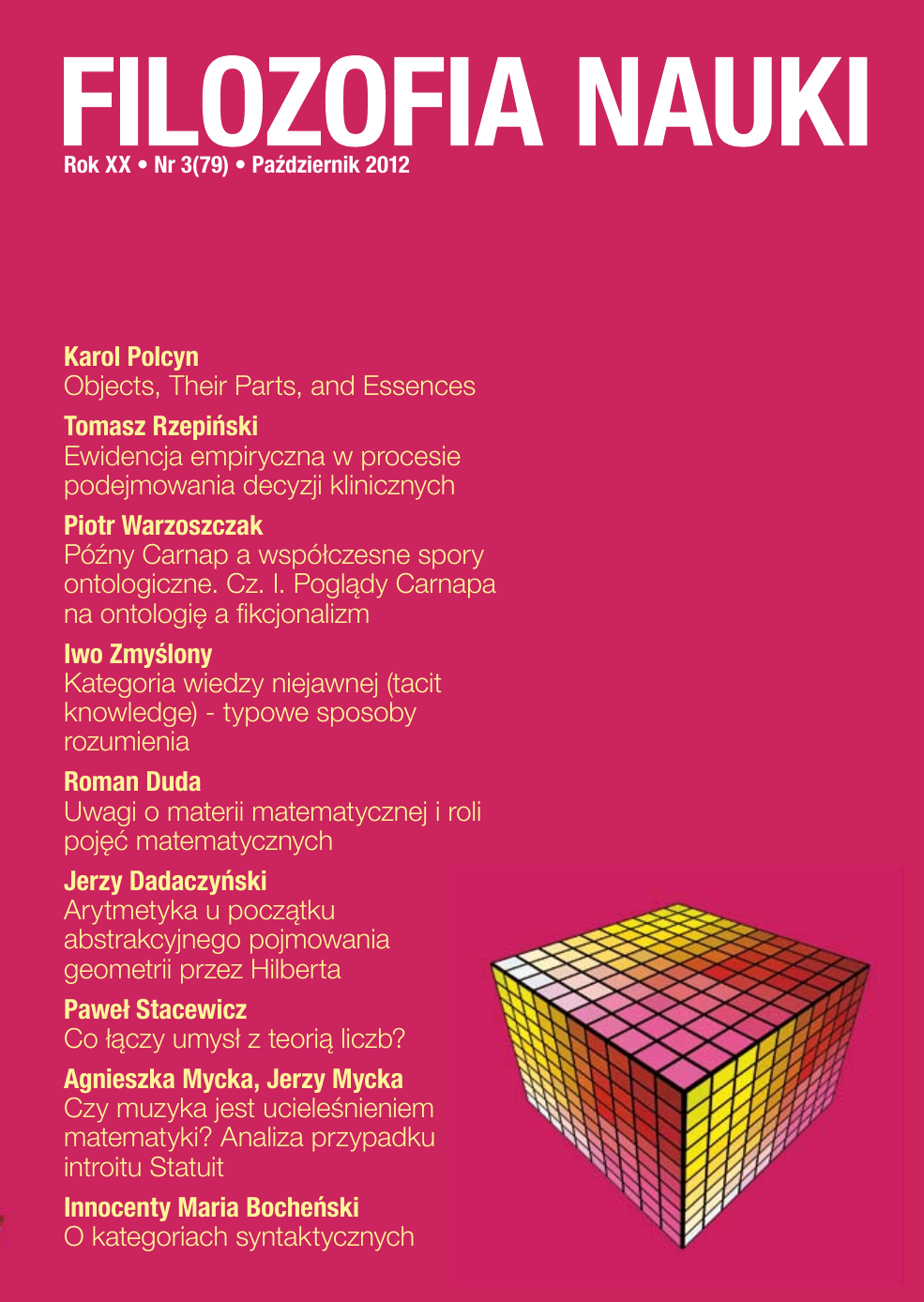Co łączy umysł z teorią liczb?
Słowa kluczowe:
coding, mental code, computable number, non-computable number, Turing machine, data processingAbstrakt
According to the methodology of cognitive science we consider a hypothesis (justified partially by cognitive applications of computer science), that the mind functions similarly to a computer. Philosophical consequences of this thesis are as follows: (1) there exists a mental code (similar to the code of computer program); (2) this code can be represented as one unique number; (3) this number can be computable or non-computable.
If the number representing mental code is computable (by Turing machine), then it is theoretically possible to implement the mind (all cognitive processes) by means of digital techniques of data processing (because digital computers are equivalent in a theory to Turing machines). If the „mental number” belongs to a class of noncomputable numbers, however, it is highly possible that only other techniques (for example, analog or partially random ones) can guarantee an overall computer implementation of human cognition.















 Filozofia Nauki | ISSN 1230-6894 | e-ISSN 2657-5868
Filozofia Nauki | ISSN 1230-6894 | e-ISSN 2657-5868